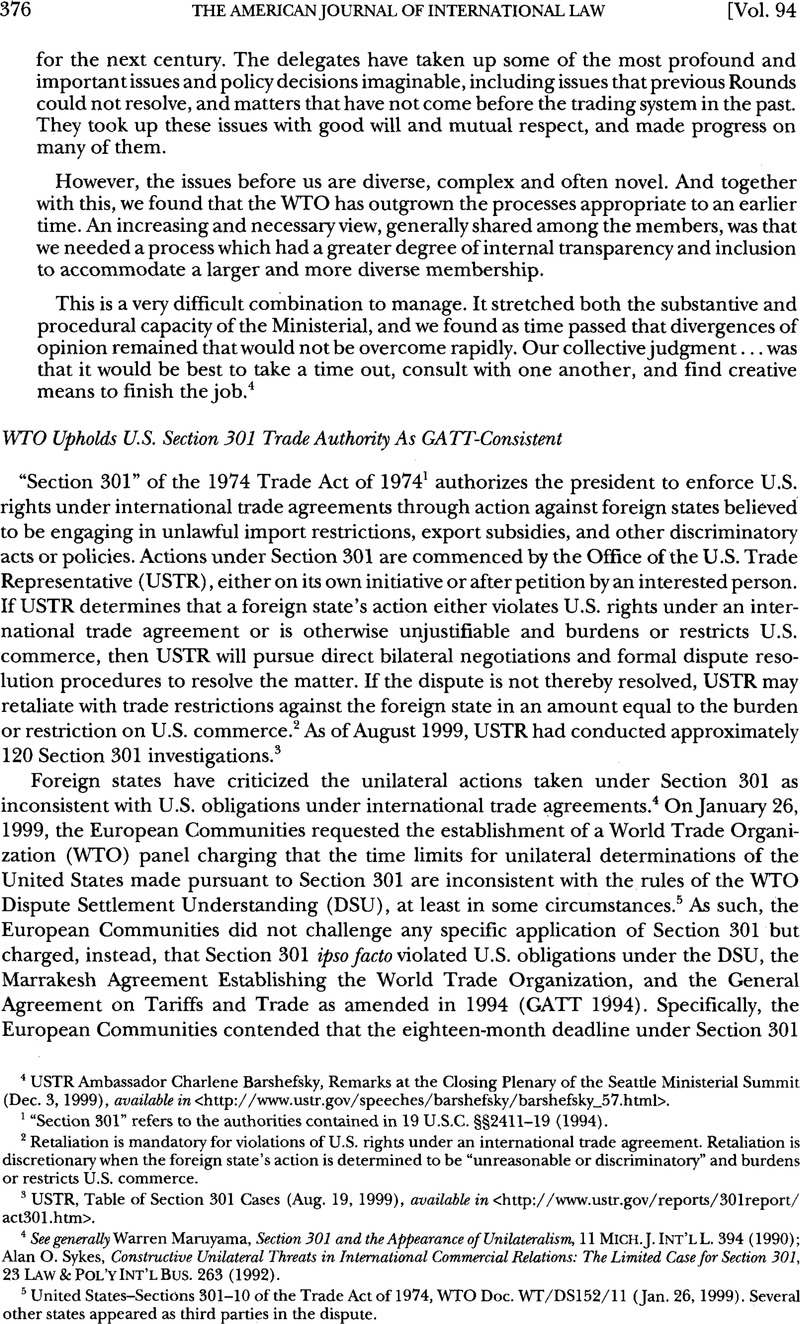No CrossRef data available.
Published online by Cambridge University Press: 10 March 2017

1 “Section 301” refers to the authorities contained in 19 U.S.C. §§2411-19 (1994).
2 Retaliation is mandatory for violations of U.S. rights under an international trade agreement. Retaliation is discretionary when the foreign state’s action is determined to be “unreasonable or discriminatory” and burdens or restricts U.S. commerce.
3 USTR, Table of Section 301 Cases (Aug. 19, 1999), available in <http://www.ustr.gov/reports/301report/act301.htm> .
4 See generally Warren Maruyama, Section 301 and the Appearance of Unilateralism, 11 MlCH.J. In t ’l L. 394 (1990); Alan O. Sykes, Constructive Unilateral Threats in International Commercial Relations: The Limited Case for Section 301, 23 Law & Pol’y Int’l Bus. 263 (1992).
5 United States-Sections 301-10 of the Trade Act of 1974, WTO Doc. WT/DS152/11 (Jan. 26, 1999). Several other states appeared as third parties in the dispute.
6 United States-Sections 301-310 of the Trade Act of 1974, WTO Doc. WT/DS152/R (Dec. 22, 1999).
7 Id., para. 7.131; see Joseph Kahn, U.S. Wins Round in Trade War with Europe, N.Y. TIMES, Dec. 23, 1999, at C2.